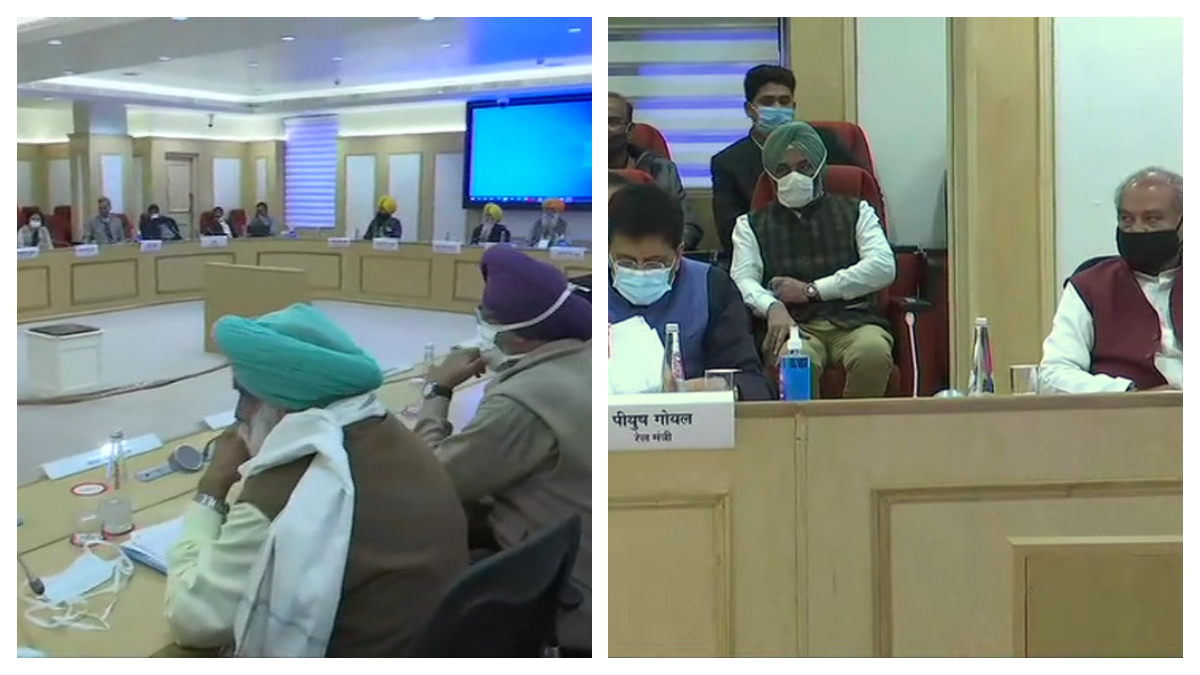The talks between farmers’ leaders and the government represented by Narendra Singh Tomar, Piyush Goyal and Som Prakash went on to be inconclusive at the Vigyan Bhavan. Next round of the meeting has been fixed on December 3.
On the other hand, the protest by farmers near Delhi is showing its impact on traffic movement at the border areas. The Delhi Traffic Police posted a tweet early on Tuesday morning which said that both Singhu and Tikri borders, where these farmers are protesting, are closed for any traffic movement.
The farmers are protesting at Singhu and Tikri borders (both on the Haryana side) after rejecting Centre’s offer to move to Burari. The protesters had asked for a location in central Delhi. Though the sit-in, which entered its sixth day on Tuesday, has been peaceful, it has affected traffic movement in both these areas. Long queues of vehicles have blocked and choked the roads as the Delhi Police kept the Singhu and Tikri borders closed. Tractor-trolleys have occupied over a 10-km-long stretch along the Ambala-Delhi national highway.
Many protesters have cushioned their trolleys with layers of straw and have laid mattresses over them to protect them from the cold. Night temperatures over the last few days have been settling at around 9 degrees Celsius.
Among the protesters, there are men and women aged over 70 years. Flags of various farmers’ outfits from Punjab and Haryana can be seen fluttering atop the tractors, some of which are fitted with loudspeakers and used by the leaders of peasants’ bodies to address the gatherings.
Experts have warned that the agitation could turn into a Covid-19 super-spreader event as there have been few signs of social distancing during the protests that started last week with the farmers, banded under various organizations, leaving their homes and moving towards Delhi.
The farmers are protesting against the three laws – Farmers (Empowerment and Protection) Agreement of Price Assurance and Farm Services Act, 2020, Farmers Produce Trade and Commerce (Promotion and Facilitation) Act, 2020 and the Essential Commodities (Amendment) Act 2020, that took effect from September 27 after getting President’s assent.
The farmers have expressed apprehension that the Centre’s farm laws would pave the way for the dismantling of the minimum support price system, leaving them at the “mercy” of big corporate lobbyists in the farm sector.
The government has maintained that the new laws will bring farmers better opportunities and usher in new technologies in agriculture.
Amid the protests by farmers blocking the national capital, officials said, the Aam Aadmi Party (AAP) led Delhi government on Tuesday notified one of the three central farm laws and is examining the remaining two. The Farmers’ Produce Trade and Commerce (Promotion and Facilitation) Ordinance, 2020 was notified on November 23, said a senior Delhi government official. “The remaining two laws are under examination by the development department of the Delhi government,” he said.
The author is a student member of Amity centre of Happiness





